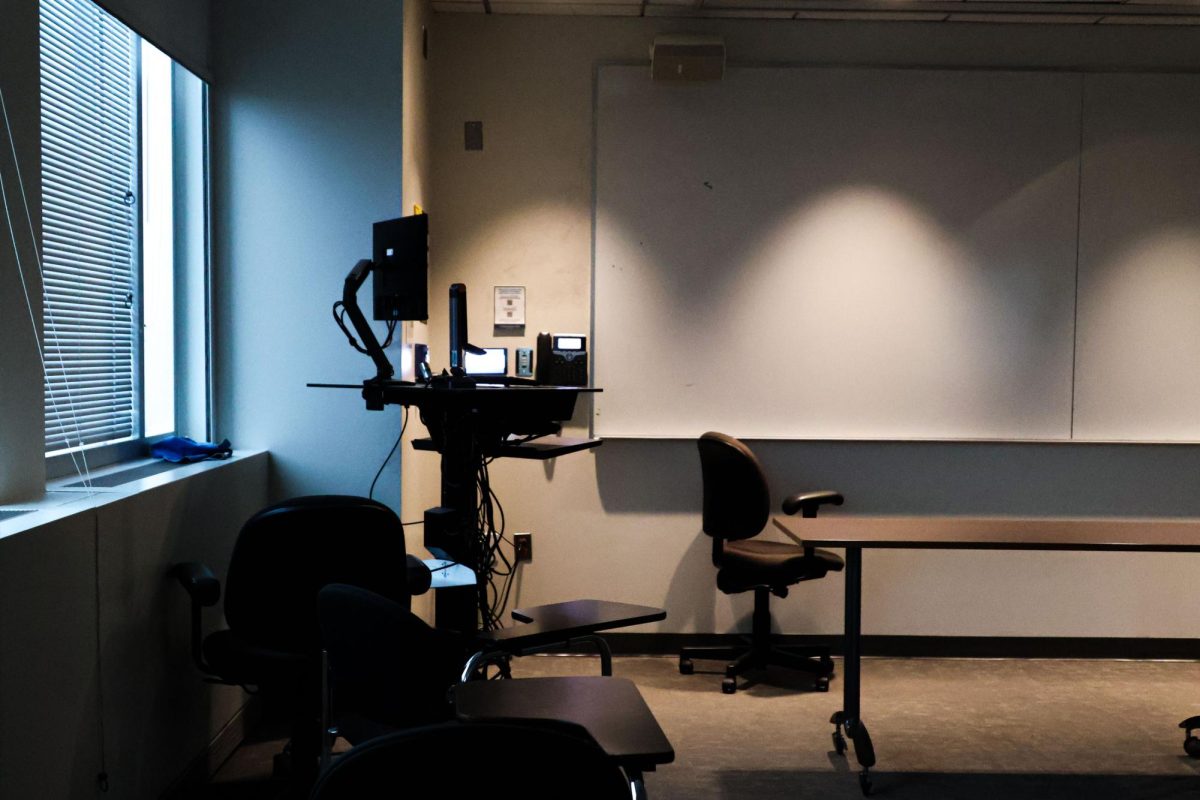GW alumna and first lady of Haiti Elisabeth Préval said she wishes the earthquake that decimated her country nearly two months ago was a nightmare; one she could wake up from and quickly forget.
But Préval – who returned to GW Wednesday morning, more than 20 years after she received her master’s degree in business administration at the University – said the aftermath of the disaster is all too real. At an event held in the Elliott School of International Affairs, Préval spoke specifically about the challenges facing Haiti’s education system after January’s devastating earthquake.
“Most of us are inclined to believe that we are still in a nightmare. That the horrible images of kids stuck in the concrete, the masses of bodies accumulated along the streets, will vanish once we wake up,” Préval told the crowd, which included Sen. Mary Landrieu, D-La., who helped rebuild the school system in New Orleans after Hurricane Katrina. “But it is a nightmare that lasts.”
Préval struggled to talk of her experience after the earthquake, choking up a few times during her speech.
She expressed dissatisfaction with the quality of education in her country even before the earthquake hit.
Before the earthquake, 500,000 school-aged children were not able to receive an education due to the severe poverty in Haiti, she said. Since the disaster, however, Préval said the situation has grown even more dire, with an additional 1.5 million children unable to return to school after more than 80 percent of the already struggling schools in the country were damaged from the disaster.
“A few days after the earthquake, I was in the Dominican Republic to visit the Haitians transported to the other side of the border, because our hospitals could not afford to provide to the masses of injured people asking for care,” Préval said, holding back tears. “Peter Stevenson, an injured boy of just 13, had just lost a leg and was on his way to surgery where he was facing the probability to be amputated of the other leg. He knew it. When I asked him what I could do for him, the answer came as a shock wave to me. ‘Please, madam, promise me that you will help me go back to school.’ In my opinion, Peter Stevenson speaks to the whole Haitian population.”
Préval urged the Haitian government to provide free education to all school-aged children, but said that the task would require the help of the international community both monetarily and with the necessary ideas for how to tackle the problems facing the education system.
“The government should guarantee free education to all the children enrolled in the schools,” Préval said. “This will be our first demonstration for the dignity and respect for the Haitian community, and the pain that has been brewing since January 12. I understand that many schools have been damaged from the earthquake, but I urge the government to do whatever necessary to bring children back to school as soon as possible. The school environment. gives the students a better chance to socialize, to receive psycho-social attention, to receive food and health care, and to come back to a normal life.”
Rebuilding the education system will be tough, Préval said, adding that there needs to be short-term solutions put in place before the country can work on creating long-term remedies. She said she hopes to help better the field of higher education in her country, modeling the system after GW.
“Ladies and gentlemen, you can see the challenges, and the system of national response is weak,” Préval said. “We cannot go out of the situation by ourselves. That is why the help of experienced people. can be useful to us. George Washington University is a wealth of expertise and knowledge. we really want to learn from you.”
University President Steven Knapp thanked Préval for urging GW students to participate in Haiti relief efforts.
“She has personally helped. to harness the passion of our students, the expertise of our faculty and the collective engagement of our entire university community,” Knapp said.
After Préval spoke, she met with several GW students including Emma Thelusme, president of GW’s Caribbean Student Association; Diandra Hayban, vice president of the CSA; Alison McDougal, a member of the Student Association; Adolf Alzuphar, a Haitian student; and Randdie Joyce Rameau, a Haitian student speaker from the vigil GW held in January. The meeting was closed to the press.
Préval’s remarks were further followed by a conference discussing how to help rebuild Haiti’s education system with panelists including Paul Vallas, superintendent of the recovery school district in New Orleans; Christina Wedekull, a member of the Swedish International Development Agency who helped coordinate post-tsunami relief in Indonesia; and Joel Desrosiers Jean-Pierre, Haiti’s minister of education.






